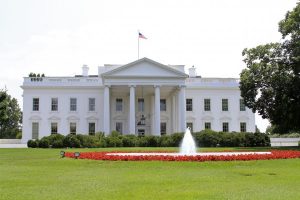Die-hard supporters of Donald Trump and those in his inner circle might not concur, but it’s highly probable that many citizens who follow the news coming out of the Trump Administration, even only a couple of weeks in, might agree that things are confusing!
- Trump signed an Executive Order (EO) on the Affordable Care Act (ACA). The EO is vague and could set the stage for repeal of the ACA before a replacement is in place. In addition, according to NPR, “Trump has also confused matters with a pledge to offer ‘insurance for everybody,’ though congressional Republicans say they assume he means ‘access’ for everyone.”
- Trump signed two EO’s related to the border wall that he promised during the campaign. This immediately soured relationships with Mexico (the planned meeting with President Enrique Peña Nieto was soon canceled), and confusion ensued over how the structure would be paid for (and presumably reimbursed by Mexico). NPR stated, “White House press secretary Sean Spicer told reporters that one way the administration is considering paying for the wall is via a 20 percent tax on imports from Mexico — a cost that would mean that U.S. consumers would, in fact, pay for the wall. Ironically, that was part of a congressional plan that Trump, less than two weeks ago, derided as ‘too complicated.’ Hours later, the White House walked it back, saying there are many funding options being considered.”
- Trump issued an immediate hiring freeze for federal employees except for military and national security positions. “Just hours after the White House emphasized that there would be no exemption for the VA from the hiring freeze, the acting secretary of the agency, Robert Snyder, seemed to issue a contradiction. ‘The Department of Veterans Affairs intends to exempt anyone it deems necessary for public safety, including front-line caregivers,’ he said in a statement.”
- Perhaps the most glaring recent presidential action that wreaked havoc on many levels has been the EO’s on immigration and refugees. Federal judges are ruling on this, and the situation continues as of this writing.
Many other examples of confusion and chaos can be noted. Trump will say or tweet something; Spicer will speak on the issue and say something different; “alternative facts” Kellyanne Conway will be interviewed and say something yet different. The press – print, television, cable, internet – tie themselves up in knots trying to cover all the iterations and quotes, but fortunately, they are at least trying to make sense of what is going on.
We should be reminded, of course, that this pattern is no different than what we witnessed from Trump during the campaign. After he won the election, the observation was bandied about that “a lot of the voters who vote for Trump take Trump seriously but not literally.” Even though some of Trump’s more radical campaign statements might now actually have to be taken literally – “build the wall and make Mexico pay for it,” for instance – the pattern of sowing confusion continues.
Media pundits and much of the public spend a great deal of energy, ink and air time trying to figure out what Trump’s strategy is behind his actions. I rarely see, however, any analysis based on Trump’s basic personality. I am not a psychologist, but there are many things that can support the argument that Trump’s penchant for sowing confusion has its roots almost entirely in his severe Antisocial Personality Disorder (APD).
Dr. Robert Hare is an authority on the psychology of a psychopath. His Psychopathy Check List-Revised (PCL-R) is now a standard tool to determine someone’s psychological make-up.
“The checklist’s 20 items include glibness/superficial charm, grandiose sense of self-worth, need for stimulation/proneness to boredom, pathological lying, conning/manipulation, lack of remorse/guilt, shallow affect, callousness/lack of empathy, parasitic lifestyle, promiscuous sexual behavior, early behavior problems, lack of realistic, long-term goals, impulsivity, failure to accept responsibility, many short-term marital relationships, juvenile delinquency and criminal versatility.”
As noted by both Tony Schwartz and David Plouffe, Donald Trump fits the profile of a psychopath or someone with APD. Note especially the trait observed by Hare of the “need for stimulation/proneness to boredom.” This need for stimulation, I believe, lies behind the way that Trump governs, sowing confusion and chaos. This confusion – along with his “tweet storms” and other seemingly inexplicable statements and actions over time – is not political strategy, as pundits, the media and other observers attempt to explain; it is deeply entrenched in his very psyche.
Trump is not normal. His erratic actions cannot be stopped or tamed for more than a short span of time. He thrives on confusion and chaos because it is a basic part of who he is. How much do his closest associates recognize this? (How many of those associates share this personality type?…) Where does this type of behavior lead, especially when it emanates from the President of the United States and no one on his team can stand up to it?
Only time will tell. In the meantime, the rest of us need to remain hyper-vigilant about what comes out of the mouth – and office – of Donald Trump.

